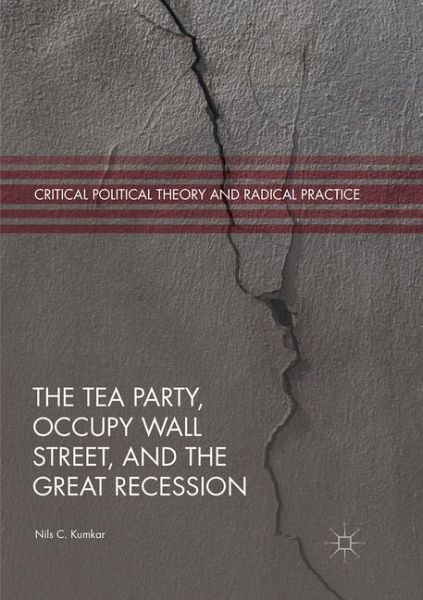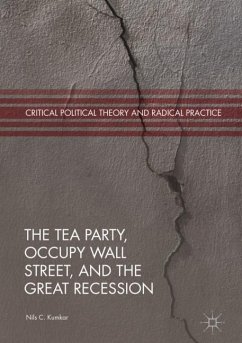
The Tea Party, Occupy Wall Street, and the Great Recession
Versandkostenfrei!
Versandfertig in 6-10 Tagen
106,99 €
inkl. MwSt.
Weitere Ausgaben:

PAYBACK Punkte
53 °P sammeln!
This book analyzes the Tea Party and Occupy Wall Street as symptoms of the structural crisis of US capitalism and its class structure. It shows that the protests have to be understood as rooted in the petty bourgeoisie's lived experience of crisis, which also plays a crucial role in current political developments like the successful presidential campaign of Donald Trump. The book explains the Great Recession as an acute phase of the structural crisis of the finance-dominated accumulation regime, identifies the social classes from which the core-participants of the respective protests recruited...
This book analyzes the Tea Party and Occupy Wall Street as symptoms of the structural crisis of US capitalism and its class structure. It shows that the protests have to be understood as rooted in the petty bourgeoisie's lived experience of crisis, which also plays a crucial role in current political developments like the successful presidential campaign of Donald Trump. The book explains the Great Recession as an acute phase of the structural crisis of the finance-dominated accumulation regime, identifies the social classes from which the core-participants of the respective protests recruited themselves and the socioeconomic developments to which they were exposed in the years leading up to the protests, and interprets interviews and group discussions conducted with activists to reconstruct the habitus that structured both their experience of the crisis and their resonance with the respective protest practices. It thereby provides an encompassing understanding of the social logicsnot only of these social movements, but of the current political conjuncture in the US.












